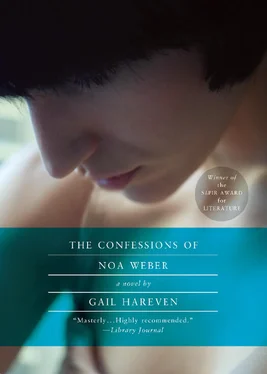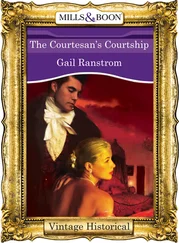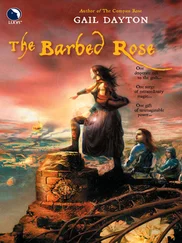Hagar’s preoccupation with “the image of the woman” began in high school, at the same high school I attended myself, with the same literature teacher and regarding the very same works that I myself studied.
“To say to a woman ‘be to me a god and an angel,’ ” she once wrote in one of her more successful compositions, “is like telling her that she isn’t a human being!!! Bialik has no right to dictate to a woman what she should be!!!” On behalf of these well-put sentiments, with all their angry exclamation marks, and others like them, my darling often quarreled with her literature teacher. Thanks to her congenital immunity she seems to be completely deaf to certain notes, so that they simply fail to have any effect on her at all, or else they activate only her sense of justice and social anger. A justified anger, I have to say, an absolutely and completely justified social anger.
But for the second of July 1972, but for Alek, perhaps I would be as pure and innocent as she is today.
“In my opinion Sonia is a superficial one-dimensional character,” wrote my darling vehemently when they studied Crime and Punishment , and she added arguments far more compelling than any I had to offer at her age. All kinds of explanations about the connection between the kedosha , the saintly woman, and the kedeisha , the temple whore, and how “the patriarchal culture produced them both.”
In my day the combination “patriarchal culture” did not yet exist.
When I read the essay she left lying on the kitchen table, with the usual mark of 100 written on top of the page, it suddenly seemed to me that this red-inked hundred referred to my age, so infirm of mind did I feel. Muddling memories, he stood there like that and I lay there when he said and then I said.… My arteries so clogged with memories that I didn’t have a drop of strength to speak, and in any case there was too much, much too much, and it was too late to explain anything.
When she praised the last scene of Dead Woman’s Voice my daughter told me — she was twenty-five then — that I had done well to “expose the falsity of that text” and that it was “important to educate the public to understand how chauvinistic that song is.”
My good darling is right, we have to educate, we have no choice, and I educated her, I had no choice, and she with her marvelous purity is the perfect creation of my educational endeavors.
Even if I were given the chance to bring her up all over again, I wouldn’t change a thing.
I DO MY THING AND YOU DO YOURS
The first time I saw Tamara was on the eve of Purim, when all kinds of people dropped in on us on their way to the big party at the Bezalel Academy of Art, and already in that half hour I knew that something had happened or was going to happen between her and Alek. It’s hard to say exactly how such things are grasped, but I think that I knew not because of the way they looked at each other, but just the opposite, because of the way they avoided looking. He didn’t make room for her to sit down. He didn’t pour her a drink. None of his usual chivalrous gestures towards the pretty faces who would show up at the house.
Tamara — not Tamar but Tamara — was as affected in my eyes as her name. She had dressed up for the party in a gold sari, and if she had removed her steel-rimmed glasses, with her long black hair and dark, slightly asymmetrical face, she would have looked like one of Gauguin’s women. A thin Gauguin. Although she was as Israeli as I was, a Jerusalemite from the well-heeled suburb of Rehavia, she surrounded herself with a kind of aura of foreignness. She was studying comparative literature with Alek, and she talked through her nose in a would-be European accent, although it was impossible to say which Europe exactly.
On that first evening she showed up with a friend draped in a sheet supposed to be a toga, who came back on the following days, but the minute I set eyes on his pampered mouth and receding chin, and took in the pair of them together, I knew that I couldn’t expect any protection from him.
The pregnant Cinderella was not going to the party, even though a number of people asked me if I wanted a ticket. With my big belly and scratchy tights under my galabiyeh , and my feeling of vulnerability, I had no intention of exposing myself to the particular torment of Purim. I waited for everyone to leave with their costumes and rattles, so that I could go to bed at last and be by myself. But when I was alone I was subject to another torment, no less intrusive than the noise of the merry-making, and from which I could not hide in bed, because it was even more savage lying down.
From the beginning, the beginning of our relationship, that is, I knew that this torment would come. In other words, I had no reason to assume that Alek would abstain from other women, and in spite of my own limited experience, I was certainly able to recognize his. I knew on my skin how every movement of his with me, every kiss and caress, bore the memory of previous contacts, and I knew it so precisely, that it sometimes seemed to me that the memory of these previous sexual encounters had entered into me by osmosis, and I could actually see the images. I was seventeen and eighteen in our first year, and he was twenty-eight. And to this day I have this feeling, as if I can guess via the sex what kind of woman he was with before. As if our love-making made all the others present.
Today I don’t care any more, I think I don’t care, but that lofty indifference was acquired with effort and passed through all kinds of stages on the way, the one being the stage of the gestalt mantra: I’m me and you’re you, I do my thing and you do yours. Now I think that this slogan serves as a theoretical rationalization for abuse, but for some strange reason I used this rationalization then to justify my own mute suffering: this is what I chose, this is what he chose, that’s how he is, that’s how I am, and if I don’t get up and leave, I have to bear it. And with dignity.
As far as Alek is concerned, by the way, I don’t think he ever had any desire to abuse me or any other woman. In all our years together he was discreet about his other women, perfectly discreet, but never secretive in a manner that spoke of guilt.
With me and also presumably with them, he behaved as if polygamy was the most natural thing in the world. And with the passing of time, without anything being said, he succeeded quite well in making me internalize the notion that the demand for sexual fidelity was tantamount to emasculation.
So I would never put my Nira Woolf, for example, into any kind of exclusive relationship, let alone a total commitment. And if the curtain comes down in Suitable Service with a passionate sex scene with the decent military advocate, at the opening of Daggers Drawn she already has another man in tow.
Looking back, the hardest thing was waiting for the inevitable to happen, for another woman to appear, and so perhaps, however perverse it may sound, when Tamara came into the picture it was a kind of relief.
Jealousy craves knowledge, as if knowledge of the details has it in its power to liberate the obsessive preoccupation, and at a certain point, two weeks or more after the party, I needed to know so badly that I went up to talk to her. It was in our kitchen, and she was making tea for the owner of the pampered mouth and a few others.
Me (leaning against the marble counter next to her): I wanted to tell you something.
Tamara (obviously alarmed): Yes, of course …
Me: About you and Alek.
Tamara: What? Oh … what about it? (A quick glance in my direction, and then lowering her head as she pours the tea into the mugs on the tray.)
Читать дальше












